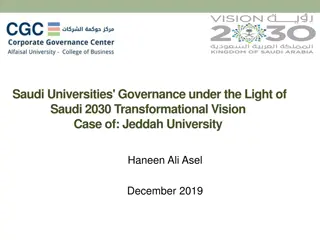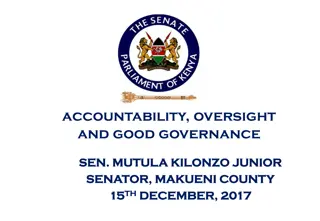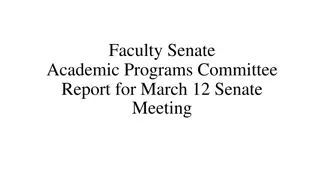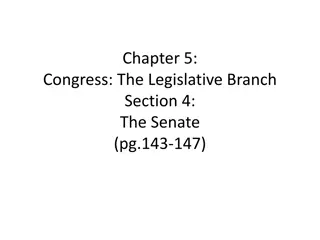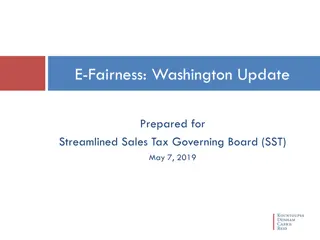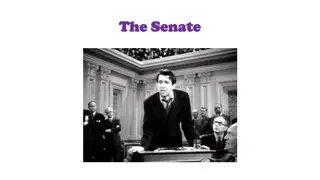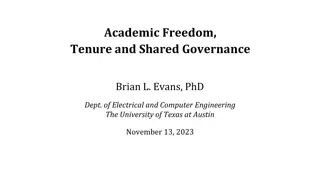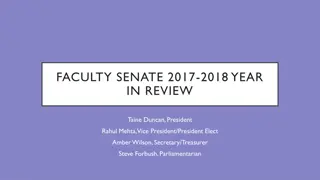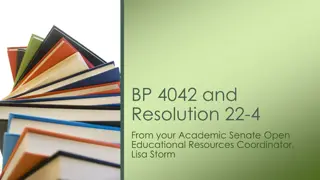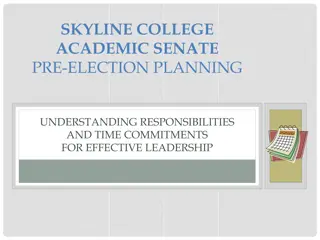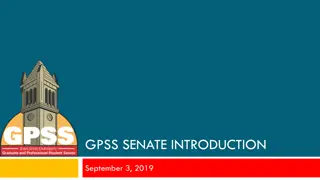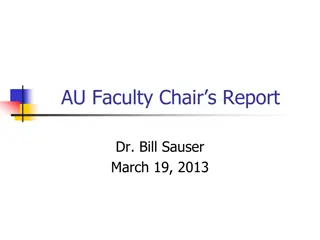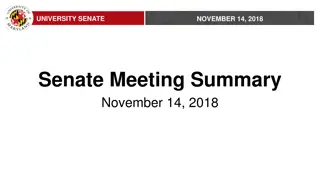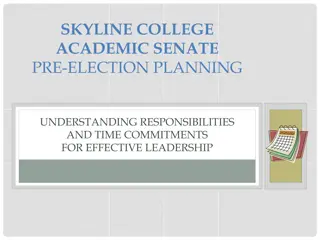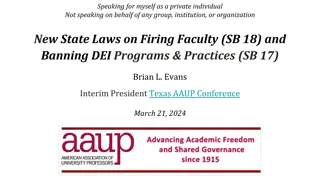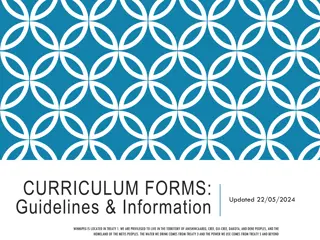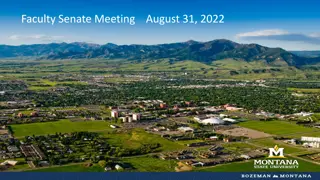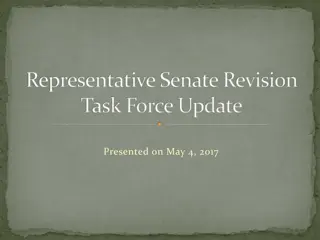Role and Function of Academic Senate in Higher Education Governance
Academic Senate plays a crucial role in the governance of higher education institutions, particularly in California community colleges. Established through legislative acts, the Senate is responsible for making recommendations on various academic and professional matters, including curriculum development, faculty roles, accreditation processes, and institutional planning. It acts as a recommending body to the governing board, ensuring policies are developed collaboratively and decisions are made with clear rationale. The Senate also fosters participatory governance through elected representatives and standing committees, contributing to the effective functioning of academic institutions.
Download Presentation

Please find below an Image/Link to download the presentation.
The content on the website is provided AS IS for your information and personal use only. It may not be sold, licensed, or shared on other websites without obtaining consent from the author. Download presentation by click this link. If you encounter any issues during the download, it is possible that the publisher has removed the file from their server.
E N D
Presentation Transcript
Brief History https://asccc.org/50th-anniversary 1963 Assembly Concurrent Resolution established legal recognition of local senates and jurisdiction over academic and professional matters 1967 Legislation created the Board of Governors of California Community Colleges and the State Chancellor s Office. 1968 first statewide meeting 1969 The constitution of the Academic Senate for California Community Colleges was ratified by local senates and the ASCCC was founded. 1975 ASCCC and local senates given many new responsibilities
10 + 1 Title 5 53200 (b): Academic Senate means an organization whose primary function is to make recommendations with respect to academic and professional matters. In Sections 53200 (c), "Academic and professional matters" mean the following policy development and implementation matters 1. Curriculum including establishing prerequisites and placing courses within disciplines 2. Degree and certificate requirements 3. Grading policies 4. Educational program development 5. Standards or policies regarding student preparation and success 6. District and college governance structures, as related to faculty roles 7. Faculty roles and involvement in accreditation processes, including self-study and annual reports 8. Policies for faculty professional development activities 9. Processes for program review 10. Processes for institutional planning and budget development + 1. Other academic and professional matters as are mutually agreed upon between the governing board and the academic senate. https://asccc.org/10_1
Participatory Governance Academic Senate at Moorpark College Elected officers AS Council members are elected department representatives not automatically the department chair 8 standing committees Curriculum Committee DE (Distance Education) EdCAP (Education Committee on Accreditation and Planning) Fiscal (Fiscal Planning Committee) FTCAP (Facilities and Technology Committee on Accreditation and Planning) PD (Professional Development) SEA (Student Equity and Achievement Committee) SLO (Student Learning Outcomes Committee) https://www.moorparkcollege.edu/faculty-and-staff/academic-senate
Recommending Body Academic Senate is a recommending body. The district governing board shall develop policies on academic and professional matters through either or both of the following methods, according to its own discretion: 1. Relying primarily upon the advice and judgement of the academic senate; or 2. If not, the Admin and Board commits its decision will be based on a clear and substantive rationale that puts the explanation for the decision in an accurate, appropriate, and relevant context. The Academic Senate shall have a reasonable expectation of receiving a written explanation when mutual agreement is not reached.
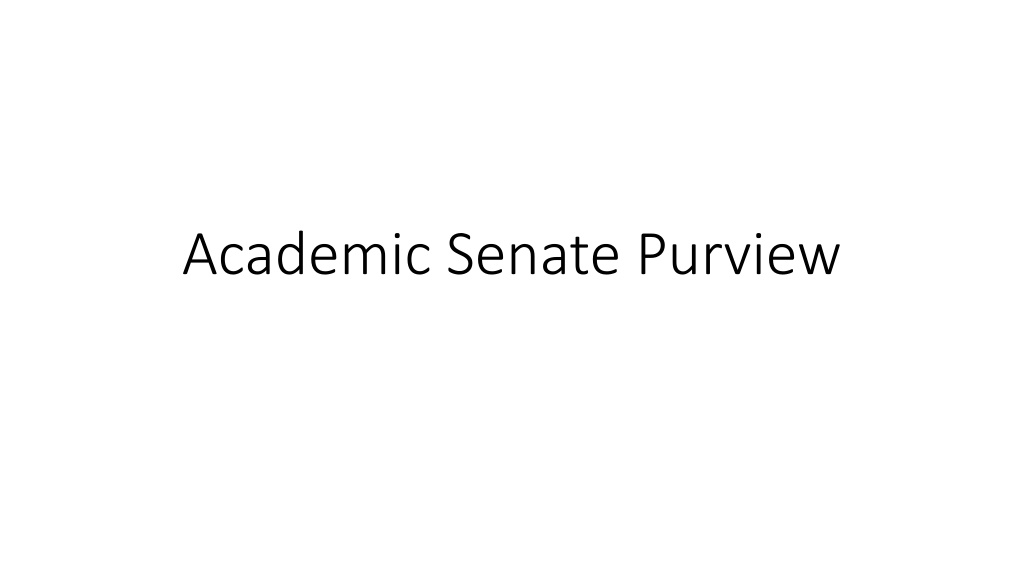

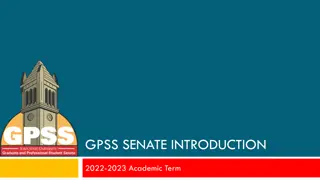
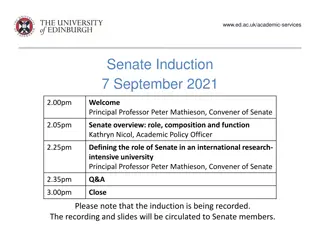
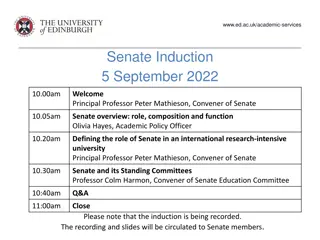
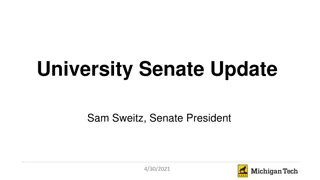
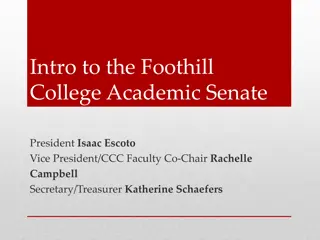
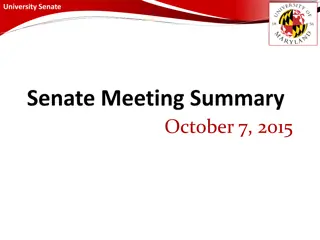
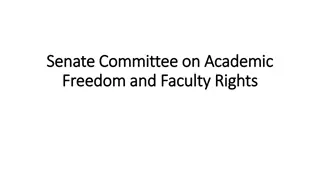

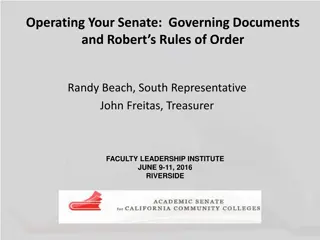
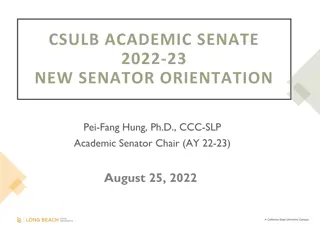

![Overview of the Faculty Senate at [Institution Name]](/thumb/233771/overview-of-the-faculty-senate-at-institution-name.jpg)
